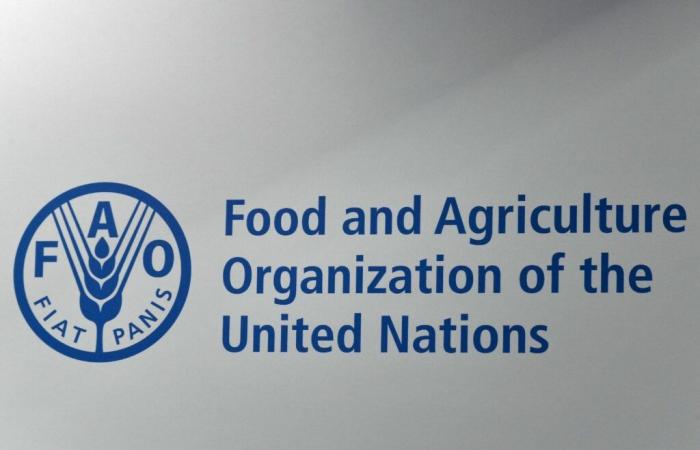Global food prices fell by 2.1% in 2024 compared to the previous year, mainly due to lower global prices of cereals and sugar, according to the FAO.
The price index calculated by the Food and Agriculture Organization of the United Nations (FAO), which tracks the variation in international prices of a basket of basic products, notably fell by 13.3% for cereals compared to 2023 and 13.2% for sugar over the same period.
These declines were partly offset by the increase in prices of vegetable oils (+9.4%), dairy products (4.7%, notably driven by butter prices) and meats (2.7%).
After the surge in the prices of cereals, and particularly wheat, in the wake of the Russian invasion of Ukraine, prices continued to fall to return to their pre-war prices on international markets.
In December 2024, wheat export prices remained broadly stable: “Downward pressure from weak international demand and increased seasonal supplies from crops in Argentina and Australia were offset by upward pressure from poor winter crop conditions in Russia »explains the monthly FAO report.
World corn prices increased slightly, “supported by a slight increase in export sales and tighter supply in the United States, as well as strong demand for Ukrainian origins”.
-Among other coarse grains, world prices of barley increased, while those of sorghum declined.
Rice prices fell slightly (-1.2%) in December, driven by a “slowing demand” of fragrant rice, but increased slightly year-on-year (+0.8%), notably supported by imports from several Asian countries during the first nine months of 2024.
The drop in sugar prices is mainly due to “Record exports from Brazil during the year” and to “positive outlook for global supply for the 2024/25 campaign”.
Despite a very slight decline in December, annual oil prices remained high, driven by palm oil in a context of “global supply crunch”.






